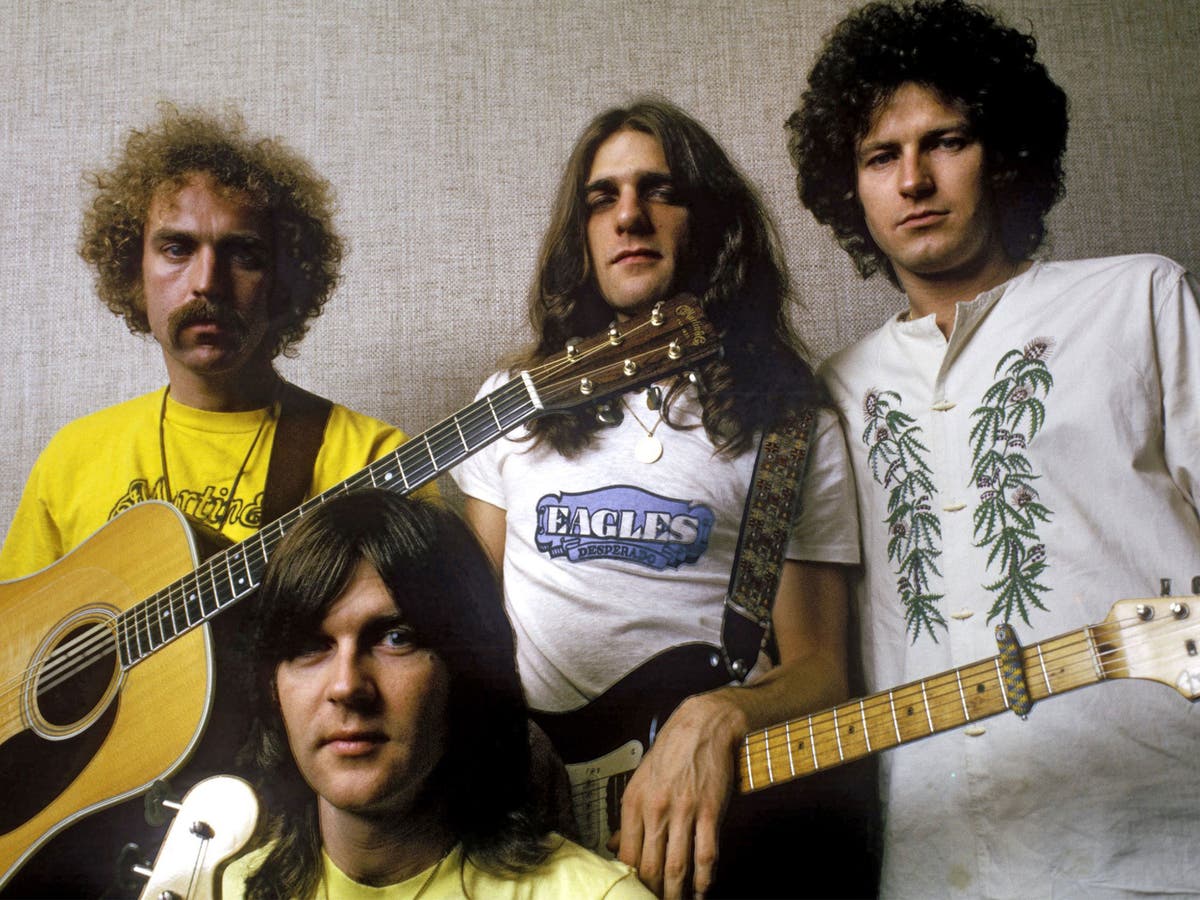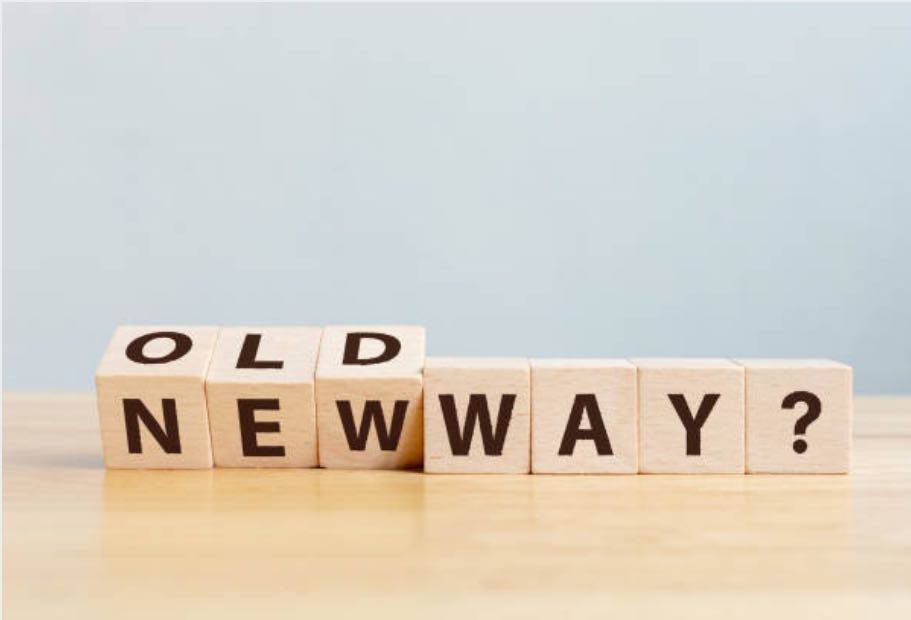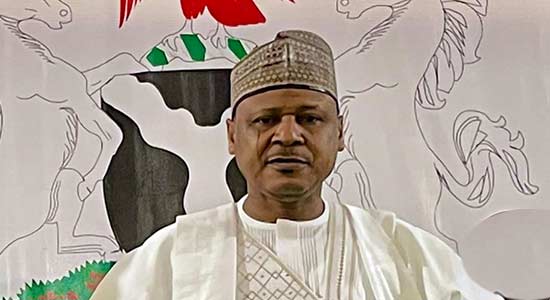What will a re-elected Putin do next?
Sam Hawley: By the end of the weekend, the Russian president will have tightened his grip on power after a farcical so-called election. It means he’ll have another six years at the helm, at least. Today, Russia expert Matthew Sussex from the Griffith Asia Institute on how Putin has transformed Russia into a dictatorship and how much further he’s willing to go. I’m Sam Hawley on Gadigal land in Sydney. This is ABC News Daily.
Sam Hawley: Matt, just before we get to talking about this election, remind me when Vladimir Putin first came to power because it was a rather different Russia back then.
Matthew Sussex: Yeah, it certainly was. Russia had gone through a period of economic, severe economic hardship. It was led by Boris Yeltsin, who was increasingly, let’s say, not in command of his faculties, as well as, you know, very sick.
News report: Corruption and economic failure turned Russians against their president, whose drunkenness and ill health were becoming increasingly public.
Matthew Sussex: And enter Putin.
News report: Boris Yeltsin used his New Year address to give the stunning news he was standing down. He said a new century needed a new leader and begged forgiveness for not giving people the bright future he had promised. He handed power to his prime minister, Vladimir Putin, as a product of Moscow’s shadowy security services, some fear he’ll favour authoritarianism over democracy.
Sam Hawley: So that was back in 1999. Now Russians are voting again, if you can really call it that. It’s not much of a contest, is it?
Matthew Sussex: No, it’s not a contest at all. The opponents that are facing Putin are state-endorsed. These are people who are basically allowed to run and typically you’ve got the Communist Party candidate who might get 3%, 4%, 5% of the vote and you’ve got the candidate from the ultra-nationalist Liberal Democratic Party who might also get 3% or 4%.
Sam Hawley: And the best-known opposition figure in Alexei Navalny was also knocked off. Not that he was going to be running, but, you know, he’s out of the way.
Matthew Sussex: That’s right. Navalny’s death, the timing of it is, I think, probably no accident. The message that it sends to Russians is that there is absolutely no hub for opposition, whether it’s on the ballot or off the ballot.
Sam Hawley: Tell me more about Putin’s crackdown in Russia. Things have really changed, haven’t they, since he invaded Ukraine? What’s he been doing?
Matthew Sussex: Well, look, it used to be that some amount of dissent was tolerated in Russia, but since the invasion, the crackdowns on freedom of expression, freedom of assembly have got much tougher. So you can get 10 to 15 years in jail for criticising the so-called special military operation. People have been subject to jail terms, beatings and arrests for merely coming up into a public place and holding a white piece of paper.
News report: Police dragging and detaining at least 1,200 protesters who gathered across dozens of cities despite warnings of imprisonment.
Matthew Sussex: People who went to Navalny’s funeral found themselves arrested and fined.
News report: An act of courage in support of the bravest of politicians. Thousands lined the streets of Moscow, defying the Kremlin and risking arrest to farewell Alexei Navalny.
Matthew Sussex: So the levers that the Russian state is prepared to use to keep the population cowed have become much stronger, I think, since the full-on invasion of Ukraine.
Sam Hawley: So under Putin, is it safe to say Russia’s become a totalitarian state? Can we call him a dictator now?
Matthew Sussex: Oh, yes, I think so. I think we can call him a despot. The difference between authoritarian and autocratic regimes is that generally authoritarian regimes are OK with some dissent. Autocratic regimes, though, because the people in charge or the person in charge is the absolute authority, then they’re effectively the embodiment of the state and so anyone who disagrees with them is by definition committing treason.
Sam Hawley: All right, well, Matt, let’s now talk about what his next term could bring. We’ve heard more and more warnings that he won’t stop with his war in Ukraine, including from the US President Joe Biden during his recent State of the Union address.
Joe Biden, US President: Overseas, Putin of Russia is on the march, invading Ukraine and sowing chaos throughout Europe and beyond. If anybody in this room thinks Putin will stop at Ukraine, I assure you he will not.
Sam Hawley: Tell me more about those concerns.
Matthew Sussex: Yeah, well, effectively, Putin, I think, perceives that the West is weak and ripe for the picking and typically the way he’s done this is to probe around the margins. There’s some significant concerns that Russia will seek to go into the internationally unrecognised region of Transnistria in Moldova, where Russia has some peacekeepers and the Kremlin floated a trial balloon about the government there requesting help from Russia. There’s significant concerns about the Baltic states and their security. Poland is rearming at a rapid rate in order to meet the threat potentially of Russia seeking to compromise its interests. And Russia’s former president, Dmitry Medvedev, recently appeared in a show where he was wearing a jacket or shirt, you know, much like Stalin used to wear, with a great big map of Europe where a lot of it was red and Russian. And he demanded that Russia’s historic lands return home to it.
Sam Hawley: And the French president, Emmanuel Macron, he stated last month that Russia could attack NATO member states in the next few years.
Matthew Sussex: Yeah, I think there is a worry that Putin will potentially try his luck when it comes to NATO just to see what he can get away with. Personally, I think he’s probably not in a position to do that at the moment. The Russians have lost an enormous amount of effectively combat power through the war in Ukraine and most of it is tied up there. But, you know, if the war ends on Putin’s terms, then he has effectively shifted the Russian government to a war economy. Something like 40% of government spending is going to the military. And from that base, it’s not too long a bow to draw, I think, to think that Putin may well decide, well, you know, I’ll take a pause and then I’ll see what else I can get away with.
Sam Hawley: But his quest is to reclaim historically Russian land.
Matthew Sussex: Yes, and in addition to that, of course, the dream of Russian Eurasianists, which is to have a pacified sphere of influence around it. So, you know, the way this argument goes is that Russia has a sort of civilizing imperative to dominate those on its territory and those around it because otherwise they would fall into disarray and fight amongst one another. I mean, the big question I would have is why does Russia need to keep expanding? Effectively, the end of the Cold War was the only time really that Russia has retreated in its history.
Sam Hawley: And all of this, of course, Matt, raises the nuclear stakes. Putin, during the lead-up to the election, appeared on state TV in Russia. It was this rambling interview where he said that Russia is ready for nuclear war over Ukraine.
Vladimir Putin, Russian President: They are developing all their components and so are we. But this does not mean, in my opinion, that they are ready to start the nuclear war tomorrow. If they want to, what shall we do? We are ready.
Sam Hawley: Do you think that’s a baseless threat?
Matthew Sussex: Look, I think that Russia tends to rattle the nuclear sabre when things aren’t going well for it. And it knows that when it does so, it’s signalling to the West that, well, we have a bigger risk appetite than you do. And that, you know, frankly, the West needs to take that very seriously and is unlikely to call Russia’s bluff, if it is, of course, a bluff. Then again, if you look at Russian nuclear doctrine, it’s actually very, very standard. Any country that has nuclear weapons, like it or not, has a plan for their use and is ready for nuclear war. In Russia, it’s a bit like the United States, that if the sovereignty and the territory and the existence of the state is under threat, that’s when nuclear weapons come into the bargain.
Sam Hawley: Horrifying thought, even talk of it. So, let’s have a look then at how nations around the world, Matt, are responding to this threat posed by Putin. What are countries at risk doing to prepare, I guess?
Matthew Sussex: Well, countries like Lithuania, like Estonia, and certainly like Poland and Czechia, are spending enormous amounts of money modernising their militaries and obtaining more weapons. Poland, in particular, is going to probably have the best equipped armed force in Europe within about the next five or six years. They’re spending, you know, 4% of GDP, up to 5%, potentially even more on their militaries. The worry, of course, is as well that if Europe feels, or European states feel as though they’re being abandoned by the United States, they might think that just simply rearming with conventional weapons is not enough. And the constant fear, I think, of countries that seek to balance against Russia, what they might do is that they might turn to things like nuclear weapons.
Sam Hawley: So, all of this sort of preparation, when at the same time there seems to be sliding support for Ukraine, especially, of course, in America, which has vitally helped Ukraine in this war. That’s a concern, isn’t it?
Matthew Sussex: Yeah, look, it certainly is. Donald Trump, if he’s elected, he will completely turn off the aid tap to Ukraine 100% and let Putin win. Which will be hugely problematic for American prestige and it’ll be hugely problematic for European security. I think that at the moment there is still more than 50% support when it comes to aiding Ukraine in the United States. Certainly, Republicans, the majority of Republicans think it’s a good thing still too. The question is whether or not the politics that’s being played with that military assistance to Ukraine, through the, in effect, capture of the speakership of the US House of Congress, Mike Johnson, by the ultra-Trumpists, is going to continue holding that aid up. And if it does, then Ukraine’s prospects are fairly grim.
Sam Hawley: So you’re saying if Donald Trump wins the US election, Vladimir Putin wins the war?
Matthew Sussex: I think that’s about the size of it, yes.
Sam Hawley: So, Matt, at this point, is there anything that could threaten Putin’s grip on power?
Matthew Sussex: Oh, look, I think there is, in consistently projecting strength and ratcheting up the repressions against the Russian people. It’s a very tempting thing and it’s a sort of almost path-dependent, on-rails thing that dictators tend to do. Ultimately, it fails. It fails either because it sparks popular outrage and the people decide, well, you know, they can’t imprison and shoot all of us and rise up, or alternatively, the leader gets removed by elites, who say, well, we don’t want to be purged as a result of this individual’s bad decisions and bad choices. However Putin leaves, the office of president in Russia, it’ll be in a box, either engineered by his rivals or because he dies in office. He certainly has no-one around him that he can trust to hand over the reins of power to.
Sam Hawley: Dr Matthew Sussex is from the Griffith Asia Institute. This episode was produced by Nell Whitehead and Bridget Fitzgerald. Audio production by Sam Dunn. Our supervising producer is David Coady. Over the weekend, catch If You’re Listening with Matt Bevan. In the latest episode, he delves deeper into how Putin makes sure he keeps winning elections. That’s on the ABC Listen app. I’m Sam Hawley. ABC News Daily will be back again on Monday. Thanks for listening.




